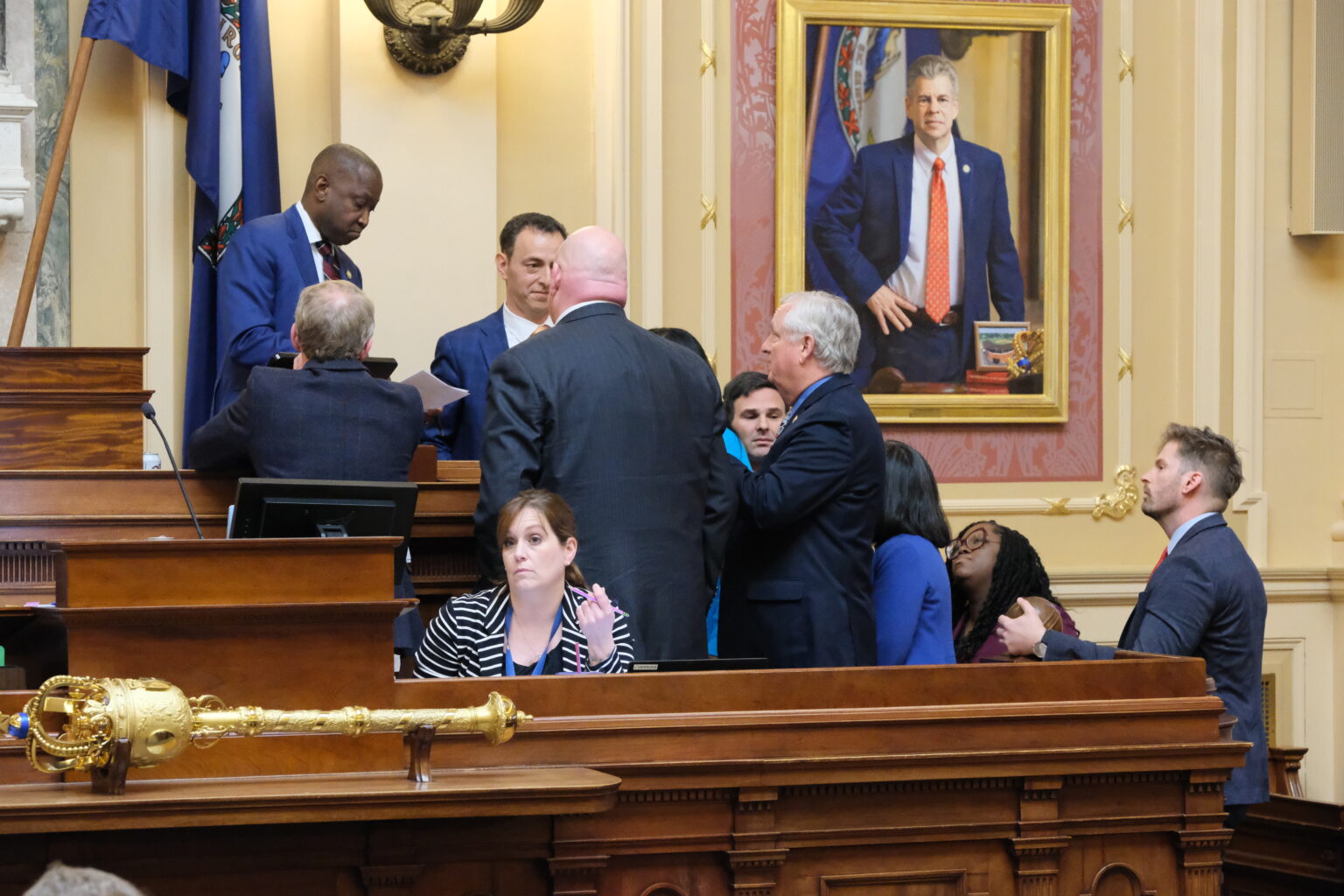Virginia Minority Leader Todd Gilbert, R-Shenandoah, was clearly frustrated. Last Monday, the Democrats decided to play political hardball with an issue that is increasingly toxic to the GOP, especially in suburban districts: abortion. Conservative Republican Del. Tim Griffin from Bedford had introduced a bill would have denied public funding to clinics and hospitals that perform abortions, even if women had been victims of rape or incest, or their lives were endangered. And the Democrats pounced.
‘A slap in the face’: Va. House GOP forced to reject own member’s anti-abortion bill
Since Democrats are now in the majority in the Virginia legislature, they easily had the votes to kill the bill quietly in committee. But they had other plans in mind, and chose instead to utilize a rarely used parliamentary rule to force the measure directly to the House floor. They didn’t just want to embarrass the newly-elected patron, whose bill was so draconian in its prohibitions on abortion that it appeared to be a “messaging bill,” a measure typically introduced by a member to placate a base constituency even though it has little chance to pass.
More importantly, putting the bill on the floor would place Republicans in a dilemma. They could vote against the bill and draw a primary challenge from the right, or support the measure and have it used against them in the next general election.
Republicans created the rule
Republicans were incensed by this tactic, which they claimed to be unfair and inconsistent with the traditions of the oldest democratic body in the western world. What the public did not know, however, is that Republicans were the source of the rule in the first place. Democratic protestations notwithstanding, the rule was adopted in 2008 and never rescinded during the next twelve years, when the GOP controlled the House. And only Republicans had ever used the rule. If imitation is the sincerest form of flattery, Republicans should have been honored by the tactic. They were not.
The similarities between last week’s debate and the last time this rule was used are unmistakable. In 2008, Republicans forced a bill onto the floor that they defined as pro-union. They knew they could defeat the measure but wanted a floor vote to force Democrats to either reject their labor allies or, as former Republican Majority Leader Morgan Griffith proclaimed at the time, “vote with the unions” and face the impacts at the polls. During floor debate, Republicans broke with the traditional deference accorded patrons to “strike” or remove the bill from consideration, arguing that once any measure is introduced, it is no longer controlled by the patron but instead becomes the property of the entire House, which can then determine how best to handle it. Democrats valiantly fought the GOP tactics on the floor, but after receiving signals from organized labor that no retribution would come from opposing the measure, most ultimately voted “no” and Republicans never obtained their “pro-union” vote.
New House Speaker Don Scott, D-Portsmouth, took the same position last week as his predecessor did fifteen years ago. He denied Del. Griffin’s motion to strike his bill. He ruled every motion made by the minority as “out of order.” This prompted Gilbert to attempt the unthinkable by challenging the ruling of the Chair. He lost that vote too.
All that remained were the ironic warnings spoken by longtime Del. Bobby Orrock, R-Caroline, to “understand the consequences that may come home to roost for all the rest of us.” And just as Republicans joined Democrats in defeating the 2008 proposal, the anti-abortion bill this year was dispatched as well.
Gotcha moments may be overrated
Each state legislative session has them – the moment when one party thinks they have the other party on the ropes and one single vote will make all the difference in the next election and whether they gain or lose the majority. It almost never ends that way.
Rarely does a state election turn on a vote on one bill, especially in today’s environment where all elections are increasingly nationalized. It is useful to draw contrasts and test the accountability of elected officials by having them vote on the significant issues of the day. And in Virginia, plenty of these contrasts will soon be drawn, as Democrats will send to the governor’s desk numerous bills on gun safety, minimum wage increases and reproductive rights that will likely prompt vetoes by Republican Gov. Glenn Youngkin. But there are many instances where the only thing that survives so-called “gotcha moments” is the enmity that partisans feel toward each other.
As Democrats in 2008 and Republicans in 2024 both argued, some political actions are not easily forgotten, and today’s victory may easily become tomorrow’s defeat.
GET THE MORNING HEADLINES.
Our stories may be republished online or in print under Creative Commons license CC BY-NC-ND 4.0. We ask that you edit only for style or to shorten, provide proper attribution and link to our website. AP and Getty images may not be republished. Please see our republishing guidelines for use of any other photos and graphics.






David J. Toscano